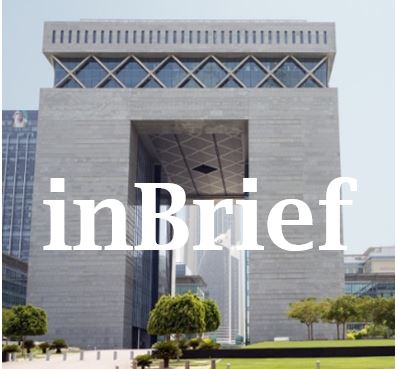Introduction
On 12 November 2018, the Dubai International Financial Centre (DIFC) introduced a suite of new legislation concerning companies operating in or from the DIFC. This consists of DIFC Law 5 of 2018 (the Companies Law), DIFC Law 7 of 2018, the Companies Regulations and the Operating Regulations.
The Companies Law has amplified the duties of directors of DIFC companies by enacting a set of directors’ duties, largely following the standard contained in the UK Companies Act 2006.
This inBrief briefly outlines the particular duties that directors of bodies corporate in the DIFC should be aware of.
Directors’ Duties
Directors’ duties are owed to the company. This means that it will in the first instance be the company, rather than the shareholders, that are entitled to enforce them.
Companies are permitted to go further than the statutory duties provided by placing more onerous requirements on their directors in their articles of association, or by virtue of a director’s terms of appointment.
The Companies Law sets out the following directors’ duties (though there may also be additional duties that are relevant to a director, for example, a duty to prepare and deliver accounts) although directors of public limited companies or financial services providers licensed by the Dubai Financial Services Authority may be subject to additional duties:
• duty to act within powers: directors are confined to exercising their powers in accordance with the company’s articles of association and for the purposes for which those powers have been conferred;
• duty to promote the success of the company: directors must act in the manner they consider, in good faith, would be most likely to promote the success of the company for the benefit of its shareholders as a whole. In doing so, directors must consider, amongst others, the interests of the company’s employees, likely consequences of any decision in the long run and the impact of the company’s operations on the community and the environment;
• duty to exercise independent judgement: directors must generally exercise their powers independently. As an example, directors may not agree to vote at a board meeting in a certain way if instructed by a third party (i.e. shareholder);
• duty to exercise reasonable care, skill and diligence: a director must act as a reasonably diligent person would at all times. A director must display the general knowledge, skill and experience to carry out the functions that are required by the director. An individual should not take on a directorship unless they are appropriately qualified or experienced to be able to perform the functions that they may reasonably be expected to carry out;
• duty to avoid conflicts of interest: directors must avoid scenarios in which they have or can have a direct or indirect interest that conflicts with, or may conflict with the company’s interest;
• duty not to accept benefits from third parties: directors must not accept any benefit from a third party which is conferred because of him being in the position as a director of the company, or for him doing (or not doing) anything in his position as director, unless the acceptance of such benefit cannot reasonably be regarded as likely to give rise to a conflict of interest. “Benefit” has not been defined in the Companies Law, but it is likely that a court considering the matter would interpret this term to have its ordinary meaning;
• duty to declare interest in a proposed transaction or arrangement: directors must declare, before entering into the relevant transaction or arrangement, to the other directors the nature and extent of any interest (direct or indirect) in a proposed transaction or arrangement with the company. As the legislation provides for indirect interest, the director need not be a party to the transaction for the duty to apply and directors should apply their mind to potential parties who may be regarded as connected persons;
• duty to declare interest in existing transaction or arrangement: directors must declare, as soon as practicable after the director became aware of the circumstances, the nature and extent of any interest (direct or indirect) in a transaction or arrangement with the company or by a subsidiary which, to a material extent, conflicts or may conflict with the interests of the company.
Consequences of breach
The consequences for directors breaching their statutory duties can be severe and may include personal civil liability, fines or payment of damages to the company. A breach of duty may also be grounds for disqualification from the position as a director.
Conclusion
Directors should familiarize themselves with the statutory duties outlined in the Companies Law (and other relevant legislation) before accepting a position as a director of a DIFC company. Individuals should assess whether they have the necessary qualifications, experience, knowledge and capabilities to perform the tasks which may be expected of the director. Directors or potential directors who are uncertain of what may be expected of them in their role as directors should seek legal advice. ■




